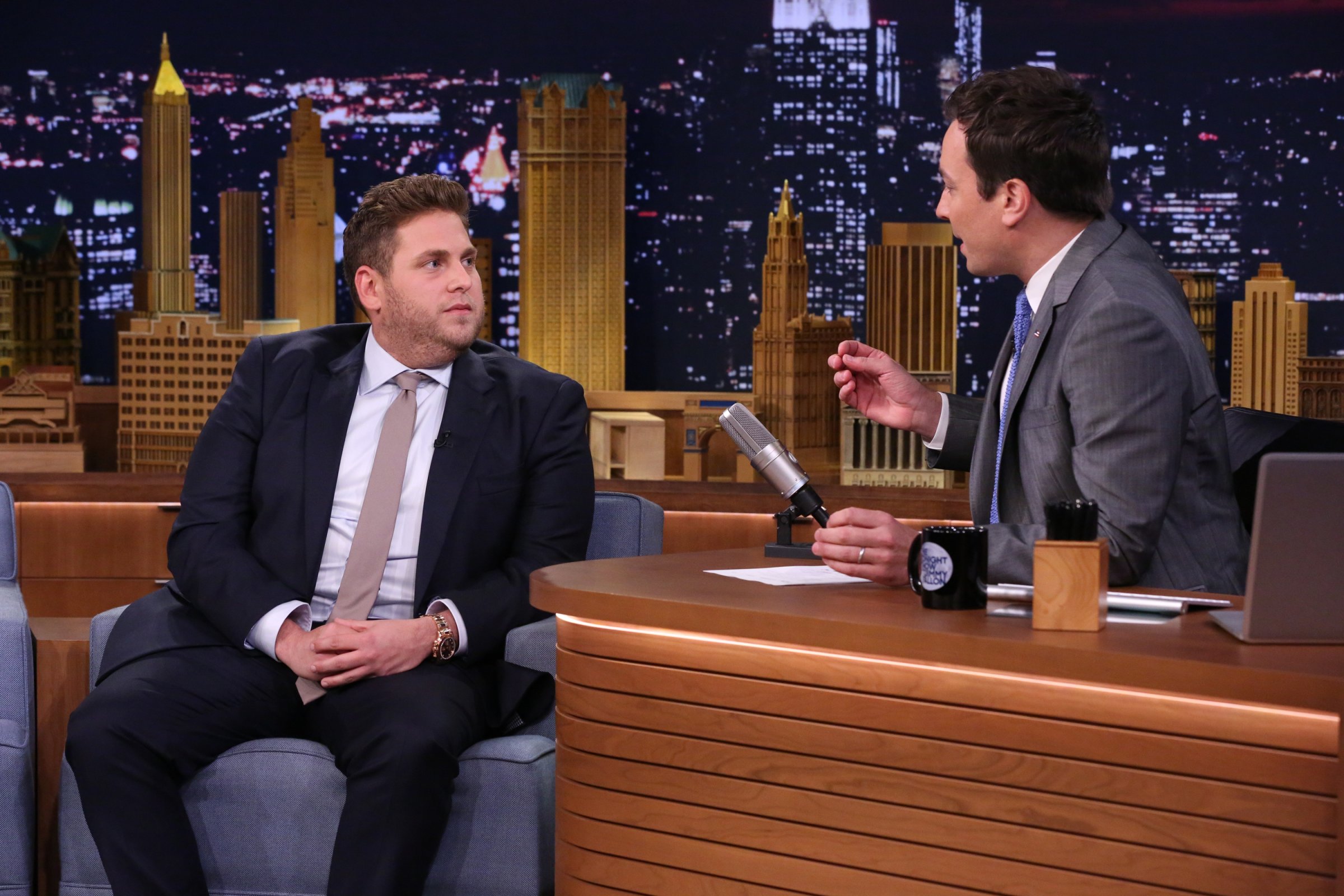
Jonah Hill, the Oscar-nominated actor, just did two things for which celebrities are famous. First, he called a paparazzo a homophobic slur (“Suck my dick, you faggot!” as captured by TMZ). Second, he appeared on The Tonight Show with Jimmy Fallon to apologize for what he’d said.
Hill says he’s always been in favor of equality for gays, so his “heart’s broken” that he said what he said. He’s also got a big movie coming out next week (22 Jump Street, a sequel to the very funny and very successful 21 Jump Street), which surely adds to his case of the sads and helps explain the urgency with which he’s trying to create a teachable moment from his unseemly outburst.
Addressing not simply The Tonight Show’s studio audience but all humanity, Hill counseled: “If someone says something that hurt you or angers you, use me as an example of what not to do. Don’t respond with hatred or anger, because you are just adding more ugliness to the world.”
If only he’d taken that advice before filming Get Him to the Greek.
I assume Hill’s act of contrition is sincere, but who cares about his hard-won, PR-friendly insight into the human condition? Why should we take his apology any more seriously than we take his ugly outburst?
That goes for any celebrity, whether it’s Alec Baldwin, whose chronic and highly entertaining rage-aholism gushes more regularly and spectacularly than Old Faithful, or Gwyneth Paltrow, with her natterings about how being famous is like surviving war and her paradigm-shattering discovery that emotional “negativity changes the structure of water.”
Celebrities don’t seem to understand their role in the modern world. They are not here to educate us or to make us aspire to a higher level of consciousness or dream of a world where sharks are treated with kindness rather than fear.
They’re here to entertain us, both on- and offscreen. That’s what they get paid so well for, and they can stop apologizing for it. As economist Tyler Cowen wrote in What Price Fame?, today’s renown is nothing like its premodern antecedent. Centuries ago, fame stemmed from martial prowess and involved brutish, dictatorial leaders forcing subjects to worship them as demigods and to mindlessly follow their directions.
With the exception of a handful of former Soviet republics and certain precincts of Hollywood, that’s thankfully all behind us. In modern societies, we get to make our own decisions about work, love and the meaning of life. “Contemporary stars are well-paid but impotent puppets,” wrote Cowen, who “serve their fans rather than making their fans serve them.”
Celebs like Hill, Justin Bieber (recently caught hurling racial epithets), James Franco (who called a theater critic a “little bitch”) and others should learn to take themselves as seriously as their fans do. Which is not very.
That’s not to say celebrities aren’t occasionally capable of genuine insights into the stuff of life. Back in 1993, the chronically controversial basketball great Charles Barkley created a scandal that was unrelated to his various drunken-driving incidents and episodes of unsportsmanlike conduct. The Round of Mound of Rebound got in trouble for stating a self-evident truth. “I am not a role model,” he announced in a Nike ad.
That wasn’t his job, he explained. He was just a guy who was good at putting a ball through a hoop. Barkley also never hesitated to point to his own role models: “My mother and grandmother were two of the hardest-working ladies in the world, and they raised me to work hard.”
Truer words were never spoken by a celebrity. Or forgotten as quickly.
More Must-Reads from TIME
- Donald Trump Is TIME's 2024 Person of the Year
- Why We Chose Trump as Person of the Year
- Is Intermittent Fasting Good or Bad for You?
- The 100 Must-Read Books of 2024
- The 20 Best Christmas TV Episodes
- Column: If Optimism Feels Ridiculous Now, Try Hope
- The Future of Climate Action Is Trade Policy
- Merle Bombardieri Is Helping People Make the Baby Decision
Contact us at letters@time.com